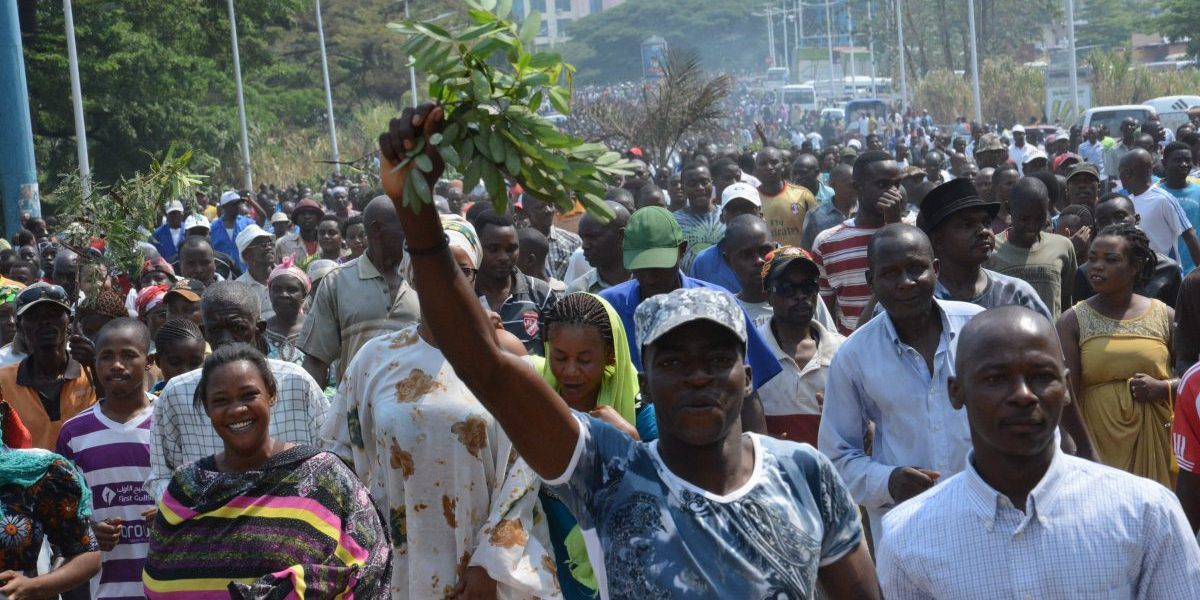The HRC has 47 seats, distributed on a proportional, regional basis. African states occupy 13 seats making it, along with the Asian Group, the largest of the UN’s five regional groupings on the 47-member HRC.
A recent report, compiled in the Department of Political and International Studies at Rhodes University and published by SAIIA, analyses the commitment of 14 African countries to international human rights. The HRC adopts dozens of resolutions every year; in 2017 it adopted 109 resolutions, covering issues that range from economic rights to extrajudicial execution. This report focuses on two domains of the HRC’s work: country-specific situations and civil and political rights.
The findings of the report challenge various pieces of received wisdom. At the UN, African states have a reputation for voting as a bloc, obstructing progress on human rights, and fiercely defending the sovereignty of developing countries. Indeed, in his reflection on the HRC’s first year, the Algerian ambassador and coordinator of the African Group at the time, Idriss Jazairy, wrote that to move away from regional solidary in a world in which ‘power relations overrule ethics’ would ‘spell disaster for weaker countries’. [1]
However, the report shows that – at least as far as country-specific human rights problems and civil and political rights are concerned – African states rarely vote in unison. Furthermore, the African Group is not the obstructer of human rights it is sometimes thought or called upon to be. Although HRC members like Egypt and Burundi are enemies of international human rights, states like Botswana, Ghana and Rwanda are clear supporters of their international advancement. In addition, while the sovereignty principle provides weak states with some protection in a world in which power is the main currency, African states are surprisingly willing to support or at least decline to oppose intrusive measures against states that violate human rights. For instance, Somalia and Djibouti sponsored a resolution to have a UN expert examine human rights in Eritrea, which was adopted without any opposing votes. In another example, in December 2017, a majority of African states voted in favour of a resolution condemning the persecution of the Rohingya people of Myanmar and authorising a number of investigations into their plight.
Another widely held view is that human rights, and civil and political rights in particular, are a Western imposition on Africa and other developing countries. While such an argument is not particularly convincing – many African states include human rights in their constitutions, for instance – the diversity among African members of the HRC and the frequent African support for human rights further weaken this argument. Indeed, the wide range of African positions at the HRC tells us that there often is no single African position on human rights and that one should be sceptical of those who make claims about human rights in Africa’s name.
Finally, among scholars, diplomats and human rights practitioners one finds the presumption that there is a direct and positive relationship between a domestic respect for human rights and international support for human rights. The HRC, just like the Commission on Human Rights before it, has been criticised for admitting rights violators as members. Nikki Haley, the Trump administration’s first ambassador to the UN, made reform to the HRC’s membership one of its conditions for not withdrawing from the organisation. [2] (The US withdrew from the HRC in June 2018.) Only four African members of the HRC in 2017 – Botswana, Ghana, South Africa and Tunisia – were regarded as ‘free’ according to Freedom House’s categorisation. Africa’s five ‘not free’ 2017 members – Burundi, Congo, Egypt, Ethiopia and Rwanda – did not belong on the HRC based on any standard that make domestic respect for human rights a requirement for HRC membership. However, the report shows that this line of thinking is problematic. Repressive states sometimes support international human rights while states that respect rights at home oppose or fail to support them at the international level. In this regard, Rwanda, one of Africa’s most oppressive states, has one of Africa’s best records on the HRC. By contrast, South Africa might have a strong domestic human rights record, but, as its middling effort on the HRC during shows, this is no guarantee of support for international human rights.
Footnotes
[1] Jazaïry I, ‘The role of regional groups and coordinators: A case study – the African Group’, in Muller L (ed.), The First 365 Days of the United Nations Human Rights Council. Geneva: Baden, 2007, p. 129.
[2] Haley N, ‘Remarks at the Graduate Institute of Geneva on “A Place for Conscience: The Future of the United States in the Human Rights Council”,’ 6 June 2017, https://usun.state.gov/remarks/7828
Read the opinion and analysis piece based on this report.
This is the first special report in our series on African States on the UN Human Rights Council. Explore other publications in the series:
Special Report 2:
Special Report 3:
Special Report 4:







